Math and Machine Learning Program Discussion
CMSA Room G10 CMSA, 20 Garden Street, Cambridge, MA, United StatesMath and Machine Learning Program Discussion
Math and Machine Learning Program Discussion
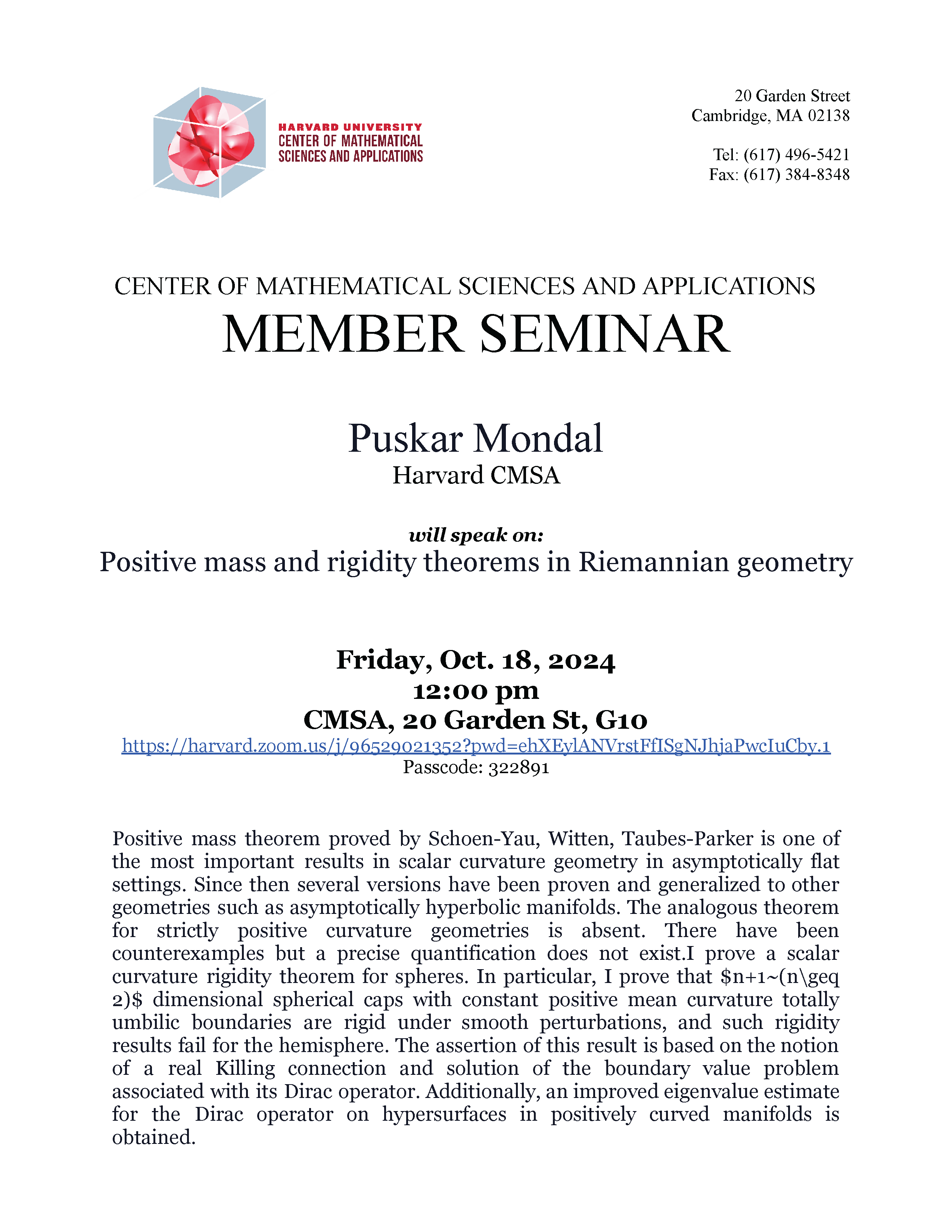
Member Seminar Speaker: Puskar Mondal Title: Positive mass and rigidity theorems in Riemannian geometry Abstract: Positive mass theorem proved by Schoen-Yau, Witten, Taubes-Parker is one of the most important results in scalar curvature geometry in asymptotically flat settings. Since then several versions have been proven and generalized to other geometries such as asymptotically hyperbolic manifolds. The analogous […]

Foundation Seminar (Joint Seminar with BHI) Location: BHI Title: Singularity Theorems, Part I Journal Club Discussion
Math and Machine Learning Program Discussion
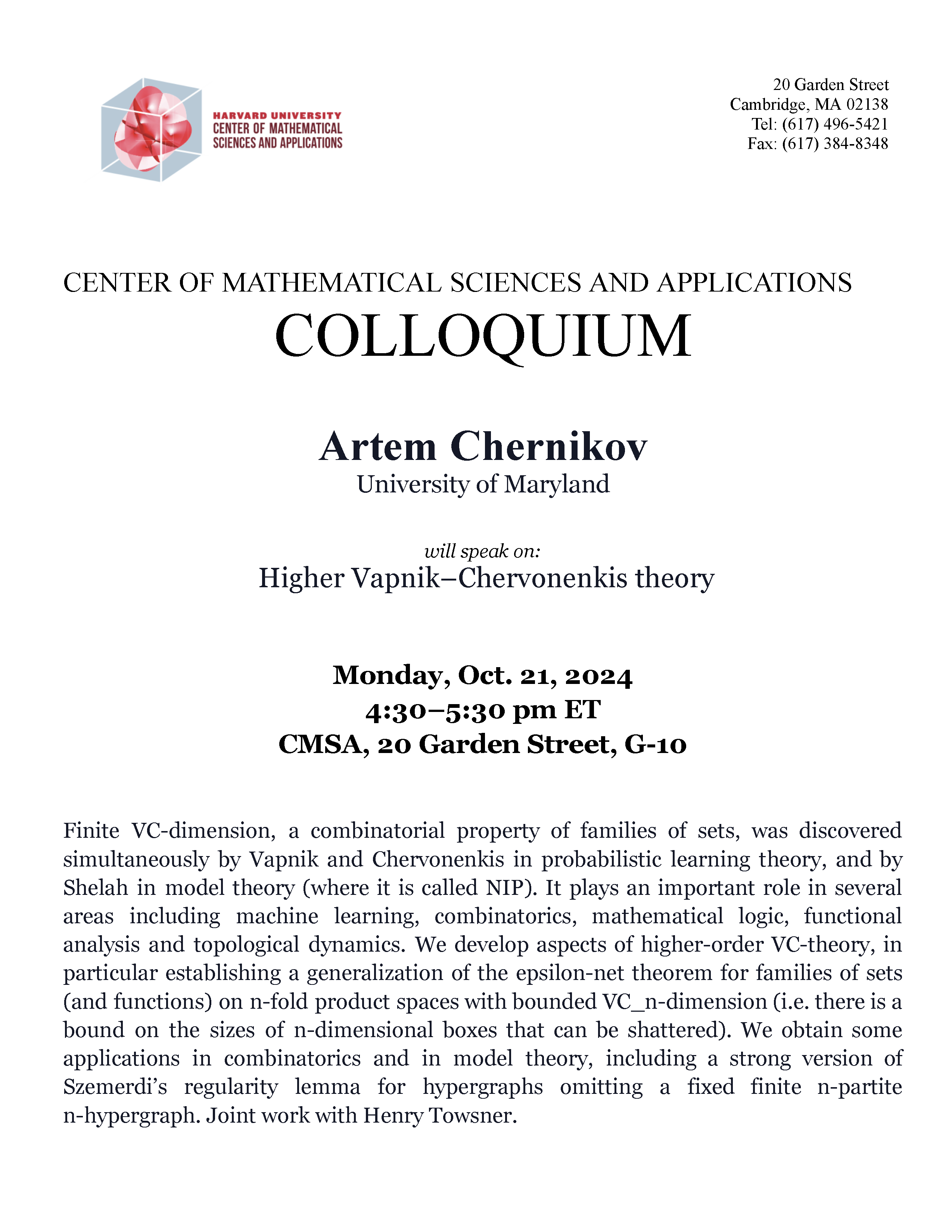
Colloquium Speaker: Artem Chernikov, University of Maryland Title: Higher Vapnik–Chervonenkis theory Abstract: Finite VC-dimension, a combinatorial property of families of sets, was discovered simultaneously by Vapnik and Chervonenkis in probabilistic learning theory, and by Shelah in model theory (where it is called NIP). It plays an important role in several areas including machine learning, combinatorics, mathematical […]
Topics in Deep Learning Theory Eli Grigsby
Open Discussion/Tea
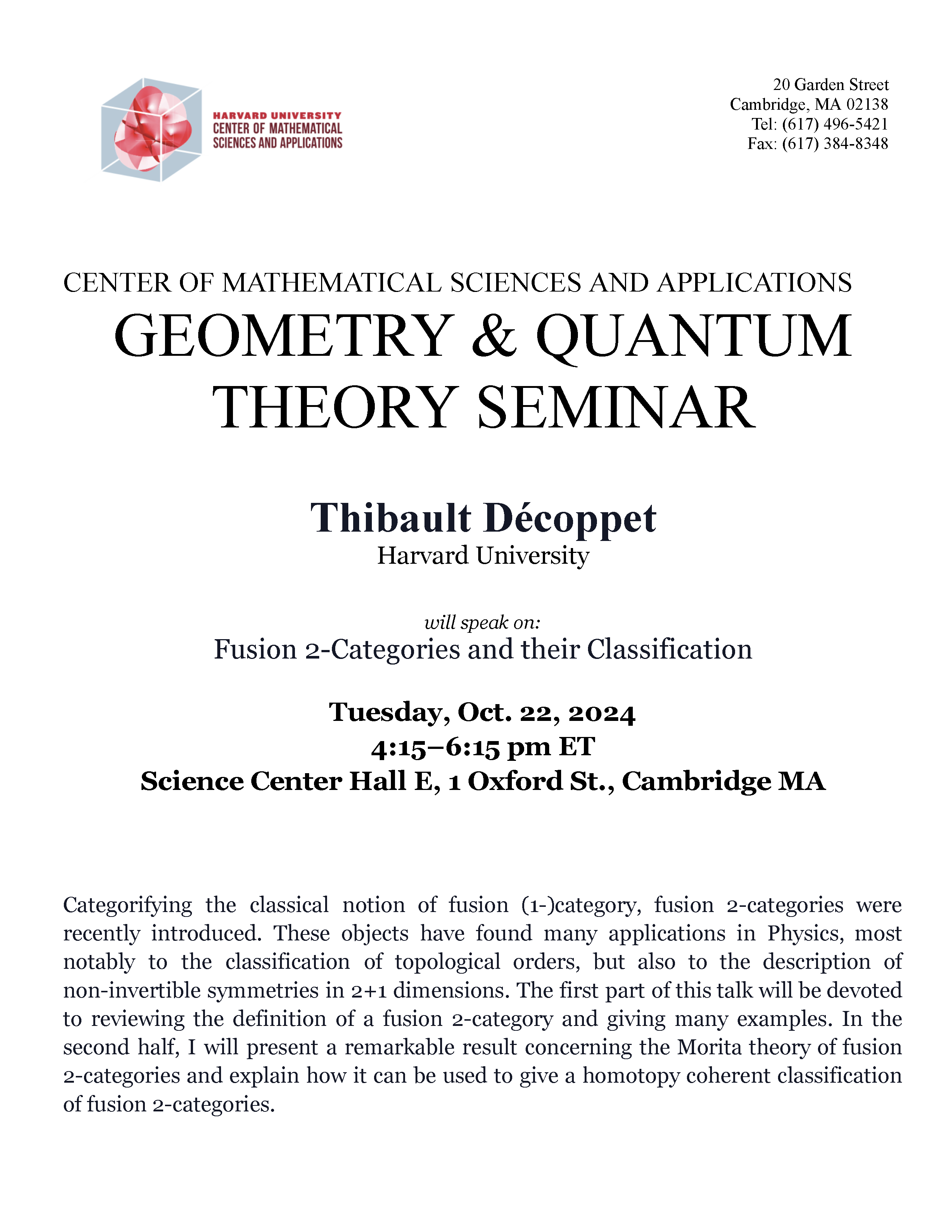
Geometry and Quantum Theory Seminar Speaker: Thibault Décoppet, Harvard University Title: Fusion 2-Categories and their Classification Abstract: Categorifying the classical notion of fusion (1-)category, fusion 2-categories were recently introduced. These objects have found many applications in Physics, most notably to the classification of topological orders, but also to the description of non-invertible symmetries in 2+1 dimensions. […]
Math and Machine Learning Program Discussion

CMSA Q&A Seminar Speaker: Dan Freed, Harvard Mathematics & CMSA Topic: What are topological phases of matter?
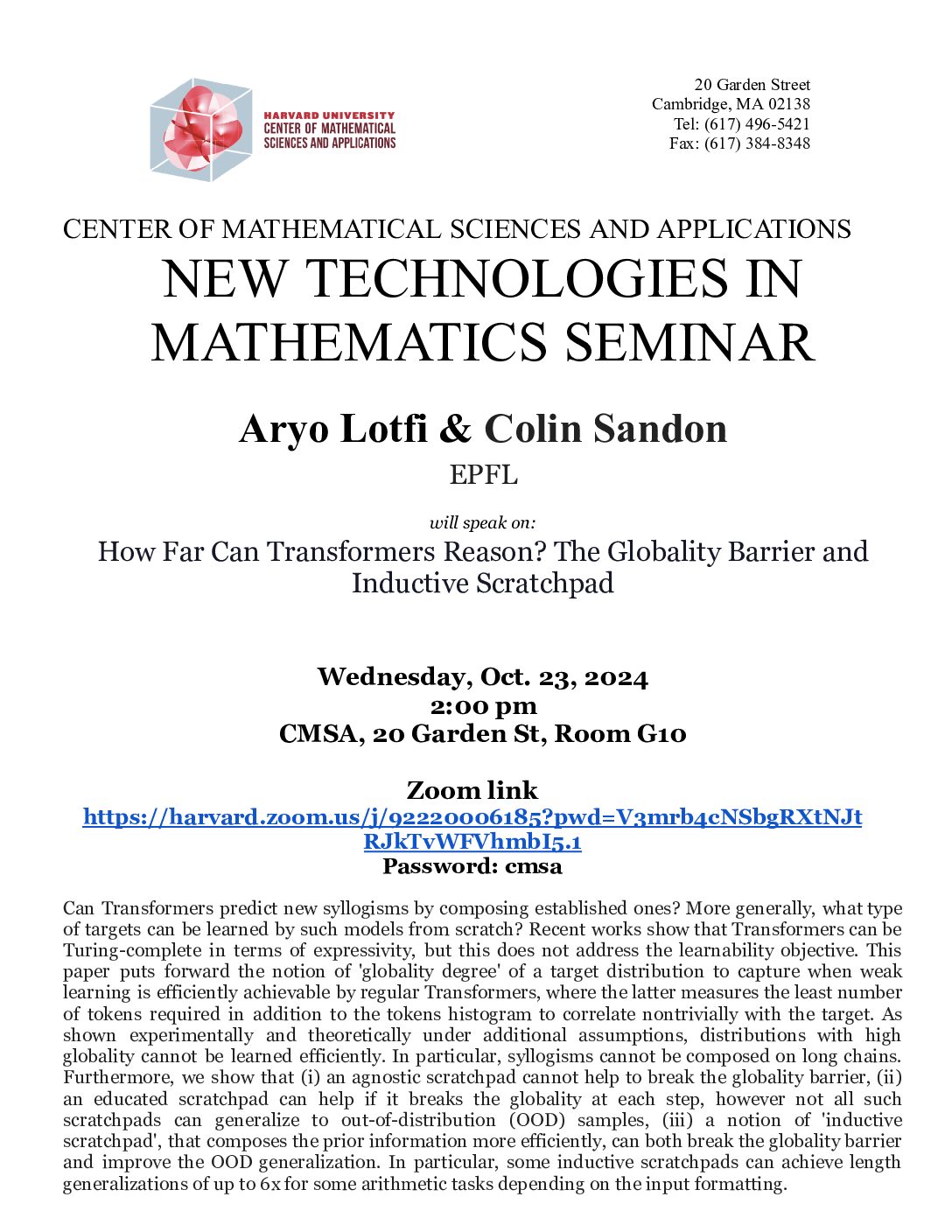
https://youtu.be/C6NDdnSaluU New Technologies in Mathematics Seminar Speaker: Aryo Lotfi (EPFL) Title: How Far Can Transformers Reason? The Globality Barrier and Inductive Scratchpad Abstract: Can Transformers predict new syllogisms by composing established ones? More generally, what type of targets can be learned by such models from scratch? Recent works show that Transformers can be Turing-complete in terms of […]
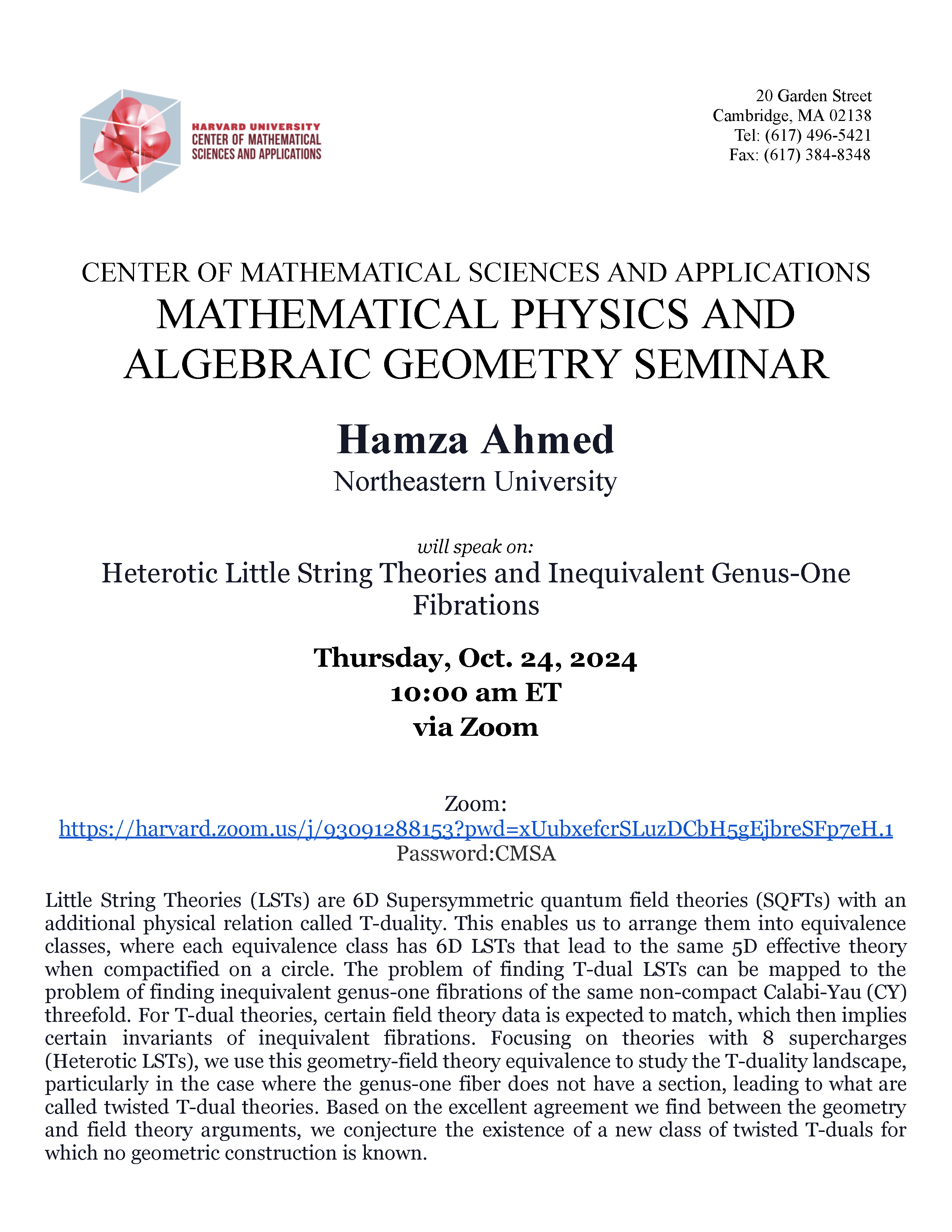
Mathematical Physics and Algebraic Geometry Seminar Speaker: Hamza Ahmed, Northeastern University Title: Heterotic Little String Theories and Inequivalent Genus-One Fibrations Abstract: Little String Theories (LSTs) are 6D Supersymmetric quantum field theories (SQFTs) with an additional physical relation called T-duality. This enables us to arrange them into equivalence classes, where each equivalence class has 6D LSTs that lead […]